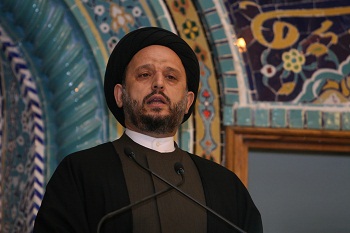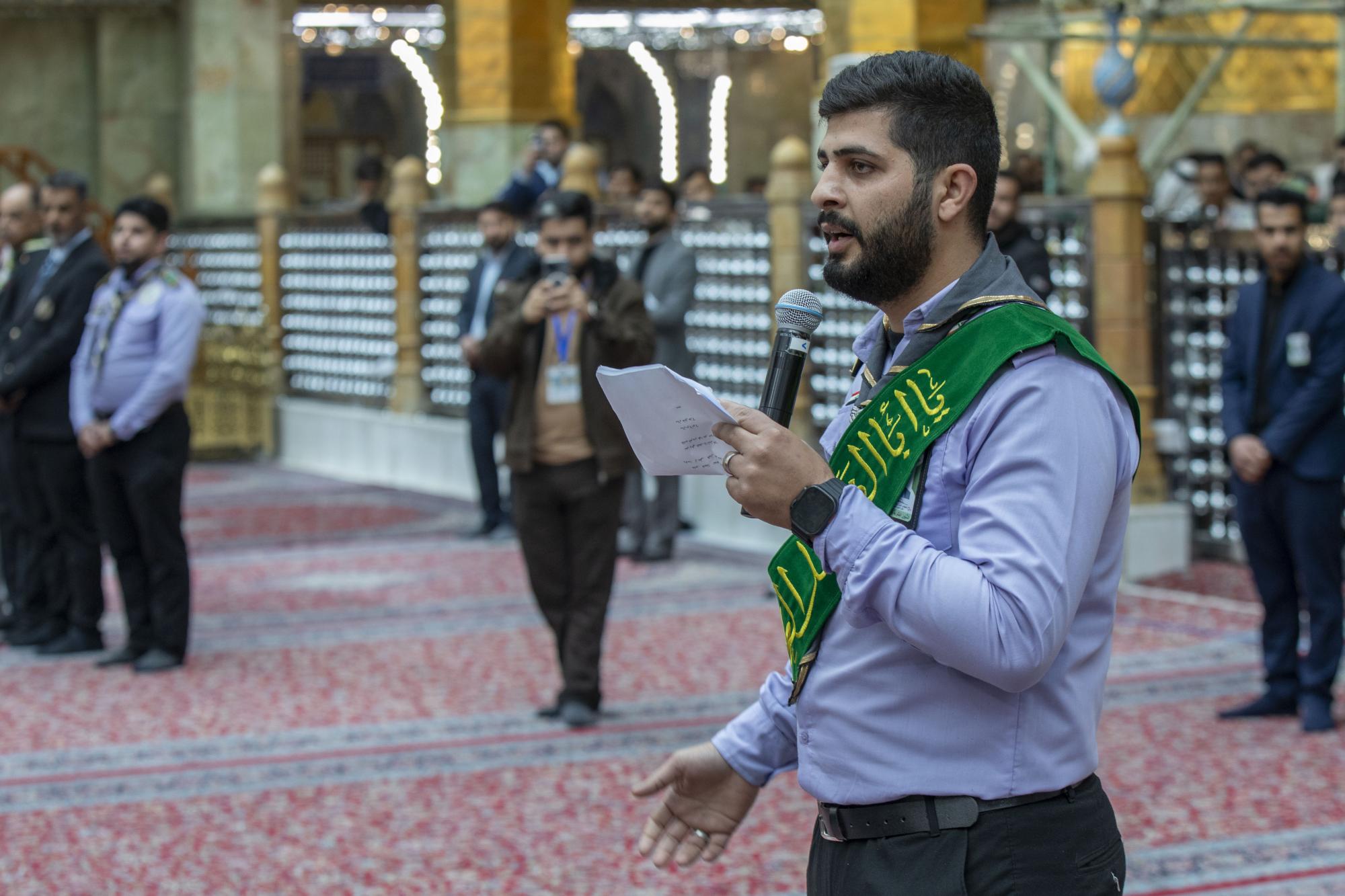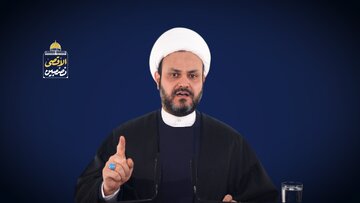His Eminence, Sayyed Ali Fadlullah, delivered the two Friday prayer sermons at the Imamain Al-Hassanain Mosque, 25th Rabi’ I 1436 H. – January, 16th 2014. Several prominent religious scholars, dignitaries and thousands of believers attended the Jumu’a prayer.
“And do not say of anything: Surely I will do it tomorrow.Unless Allah pleases; and remember your Lord when you forget and say: Maybe my Lord will guide me to a nearer course to the right than this” (18:23-24).
All Heavenly messages stress that this Ayah emphasizes that everything in the cosmos is run and managed only by the will of Allah, starting by the smallest atom and ending by the biggest galaxy, but this will is always accompanied, especially when it comes to man, by Allah’s mercy and leniency. It is also based on wisdom and the best interest of all creations. But if everything in this universe is subject to Allah’s will, which is an undisputed fact, does that mean that man is forced to do all his actions and consequently he does not shoulder the responsibility of any act he does even when it is evil and harmful?
This question becomes more significant if we couple it with the Quranic Ayahs that state that Allah guides whom He pleases and allows whom He pleases to go astray. So on what ground would man be held into account for his actions? The answer is: It is true that Allah’s will is above all others, but He has given man a privilege He did not give to any of His other creations. He has given him the freedom of choice. Imam As-Sadiq (a.s.) explains in a Hadith the meaning of this freedom. He says: “Allah created the creatures, knowing what their destinies would be. He bade and forbade them. That which He forbade them to do, He provided them with the way of leaving it. They would not be taking or leaving (something) except by Allah's will”. Therefore, the freedom of choice in its broader meaning does not mean that man is no longer subjected to Allah’s will, for it is His Will that decreed that man should enjoy this freedom.
The Quran highlights this point in a very clear and evident manner: “And if your Lord had pleased, surely all those who are in the earth would have believed, all of them; will you then force men till they become believers” (99:10). He says also: “And We do not send messengers but as givers of good news and warning” (18:56). He did not provide any prophet with a weapon to impose religion. All prophets called the people through the word and reason. Thereafter: “This is the truth from your Lord, then whoever wills let him believe, and whoever wills let him disbelieve” and: “Surely We have shown him the way: he may be thankful or unthankful”.
Had belief been coerced or imposed by force, then man would not have any advantage over the other beings. Coercion also does not build the basis for a real and solid belief. But this freedom does not mean that God left the people to fight their way in life on their own. On the contrary, He provided them with all the means of guidance, starting by an innate nature that guides them towards belief. He also gave them the mind and sent prophets and messengers, and He showed them the signs in earth, heavens and in themselves. Only then, he left them the choice, either to listen to their innate nature, supported by their minds and the Heavenly messages or to choose to be misguided.
Furthermore, the will of God always drives man towards the choice he has taken… Whoever leans to take the road of good and righteousness, Allah will lead him towards guidance. And whoever insists on disobeying Allah, Allah will leave him to make his own choice which, in this case, will lead him to plunge deeper in the world of sin and falsehood. Therefore, the meaning of the Ayah that says that Allah guides whoever He wishes and misguides whoever He pleases is that Allah leaves man to his choices, cementing the steps of those who choose to be guided and leaving the others on their own.
As such, one of the most important pillars of God’s guidance is the Ayah we cited in the beginning of this article which could be interpreted as a reliance on God and believing that He would guide whoever seeks His guidance, for Allah’s mercy has provided a big opportunity for man’s will to become a part of Allah’s will, even to the extent of changing the fate that had been decreed for him.
We are called to make every move we take in our lives dependable on Allah’s will. We should make sure to associate any decision, after having studied it thoroughly, with God’s will, which symbolizes our true worshipping of Him and acceptance of what He had decreed, and a belief that He is always with us.
/149





